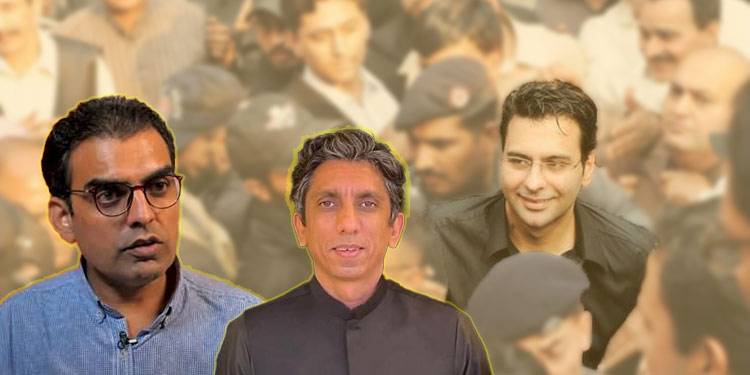
Earlier this week, a one-judge bench of the Lahore High Court dismissed the money laundering case filed against PML-Q’s Moonis Elahi, acquitting him of all the charges.
The outcome of the verdict came as a shock for many, particularly because of the haste in announcing the decision and Justice Asjad Javed Ghural’s background.
According to investigative journalist Umar Cheema, during the trial, the judge asked as to why the FIA and not the bank was a complainant in the case when the whole process was done through it.
He then asked if any challan had been filed against Jahangir Tareen as the probe began with the sugar commission which had his name in it.
Thirdly, Justice Asjad inquired about the losses to the exchequer as a result of the developments.
'It is not a legitimate argument as per the law'
According to investigative journalist Umar Cheema, during the trial, the judge asked why the FIA and not the bank was a complainant in the case when the whole process was done through the latter. He was told that the bank would have been a complainant had it been ‘cleared’.
He then asked if any challan had been filed against Jahangir Tareen as the probe began with the sugar commission that named him. While it could have provided a legit basis, it isn’t a legitimate argument as per the law, Umar Cheema added.
"It is as if a person, when caught committing a crime, asks why those committing murder are roaming around scot-free. But it seemed the judge thought that the case was being used for political vendetta.
"Justice Asjad also inquired about the losses to the exchequer as a result of the development. Firstly, if you misuse your position, then whether or not it causes a loss to the exchequer is a complex subject to deal with.
"Secondly, this question only emerges once the probe begins and thirdly, ‘loss to the exchequer’ isn’t a necessary clause to try someone for money laundering, and the case was about money laundering."
The counsel for the federal government questioned the hearing by a one-judge bench, which the same bench turned down, leading to the dismissal of the case.
Who is Justice Asjad Ghural?
Umar Cheema says that Justice Asjad hails from Gujrat and his family is deeply associated with PML-Q.
One of the judge’s cousins has served in the past as a PML-Q MPA, while his own brother is the president of the party’s UK chapter.
https://twitter.com/UmarCheema1/status/1578008165270052865
Justice Asjad had also recused himself in 2020 in a high court case involving Chaudhry Shujaat and Chaudhry Pervez Elahi, citing personal reasons.
He was also the one who penned a dissenting note in 2021 in the money laundering case involving Shehbaz Sharif, opposing his brother judge Justice Dogar's judgement, arguing the decision was made in haste.
Procedure of constituting benches under severe criticism
This case was decided by a single-member bench. Umar Cheema argued that the judges should be mindful that any questions raised on their actions allow people to question the justice system.
He cited the example of the LHC chief justice, whose son-in-law Ali Sahi belongs to Pakistan Tehreek-e-Insaf and won Faisalabad’s by-election held on July 17.
A few days ago, Sahi, who is now a powerful minister holding the communication and works portfolio, hosted a dinner for some learned judges, who participated in good numbers, reported Cheema.
He further said that the one-judge bench was constituted by the chief justice of the high court.

